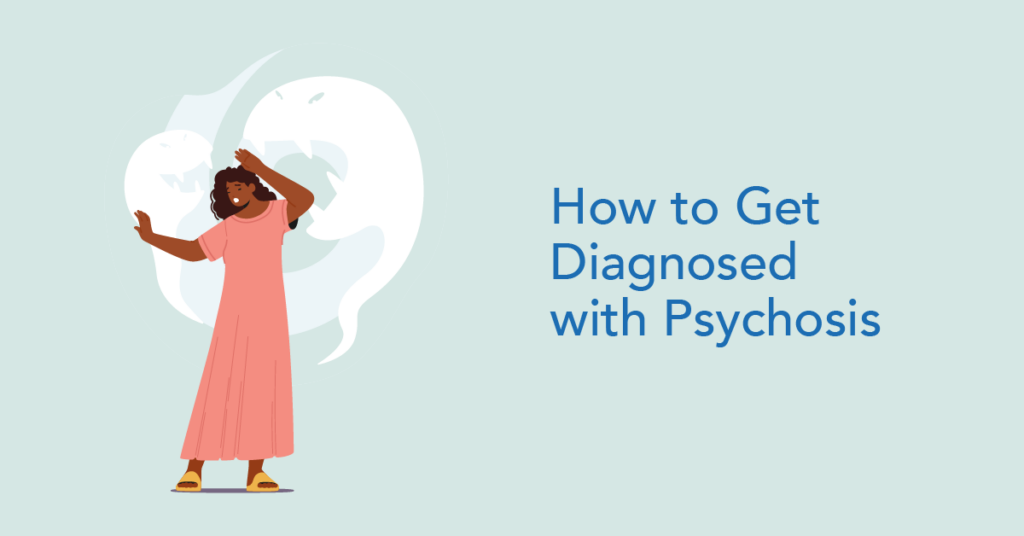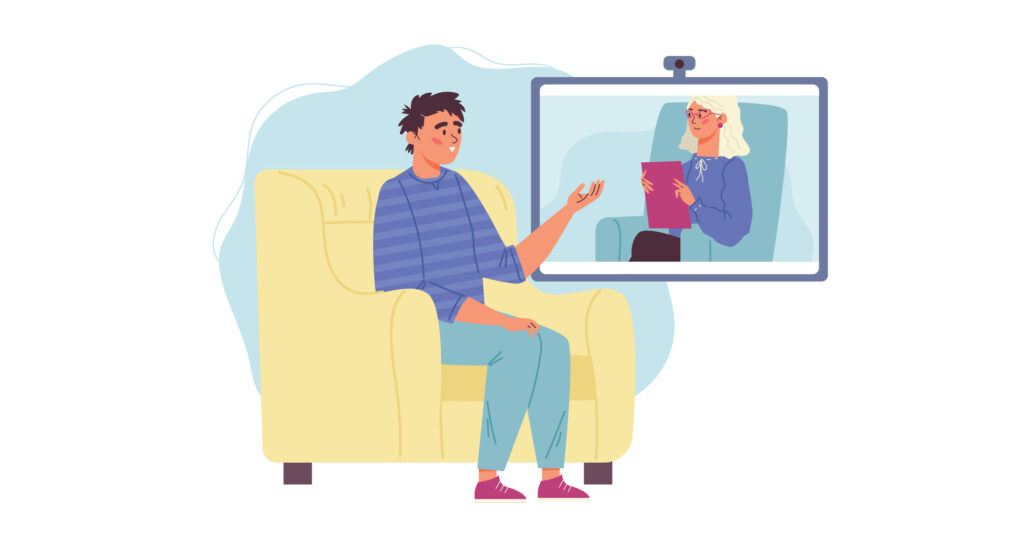Psychosis diagnosis involves a psychiatric evaluation:
Discuss hallucinations, delusions, behavior
Rule out medical or substance causes
Early help leads to better outcomes
If you or someone you care about is experiencing symptoms like hearing voices or feeling disconnected from reality, you might be wondering about psychosis screening. These symptoms can be scary, but help to deal with them is out there. At Mental Health Hotline, we’re here to help you understand how psychosis is diagnosed, who can help and why early psychosis diagnosis and intervention matters. Let’s walk through this process together — one step at a time.
What Is Psychosis?
Psychosis is a mental health symptom, not a stand-alone disorder. It affects how a person perceives reality. It can involve hallucinations (seeing or hearing things others don’t), delusions (strong false beliefs) or disorganized thinking. Psychosis is often linked to conditions like schizophrenia, bipolar disorder and severe depression. Between 15 and 100 out of 100,000 people develop psychosis each year, according to the National Institute of Mental Health. It’s most likely to occur in young adults in their late teens or early 20s or in older adults who are suffering from neurological disorders. Schizophrenia is a mental health disorder that includes psychosis as a key symptom. To receive a schizophrenia diagnosis, a person must experience psychosis along with other criteria, such as disorganized speech or reduced emotional expression, for at least 6 months. Not everyone with psychosis has schizophrenia, so a thorough schizophrenia assessment is important to allow health care providers to pinpoint the cause. While it can feel frightening, psychosis is treatable, especially with early psychosis diagnosis and support. The first step is to access psychosis screening so you can be sure you have the correct diagnosis guiding your treatment.Common Symptoms of Psychosis
Recognizing the signs of psychosis is key to getting help. Symptoms may develop gradually or appear suddenly and can include:- Hallucinations. These can be visual or auditory and may include hearing voices, seeing shadows or feeling sensations that aren’t real.
- Delusions. Believing in things that aren’t true, like thinking you have special powers or someone is plotting against you, is a common symptom of psychosis.
- Disorganized speech. If a loved one is experiencing psychosis, you might notice that they quickly jump between topics or speak in ways that are hard to follow.
- Withdrawal. Pulling away from friends, family or daily activities is common for people who are experiencing psychosis.
- Confusion. Struggling to focus, remember things or make decisions can be symptoms of psychosis, but they’re also symptoms of other mental health and neurological conditions, so it’s important to get the correct psychosis screening.
Who Can Diagnose Psychosis?
Getting an early psychosis diagnosis involves approaching the right health care professionals. Take a look at the list below to figure out who to reach out to.- Psychiatrists. These doctors specialize in mental health and can diagnose psychosis, prescribe medication and recommend treatment.
- Primary care physicians. Your regular doctor can rule out physical causes, which might include thyroid issues or an infection, and refer you to a mental health specialist.
- Psychologists. These health care professionals use clinical interviews and schizophrenia assessment tools to identify psychosis and related conditions.
- Early intervention teams. Specialized programs focus on early psychosis diagnosis and tailored care for young adults.
What Does a Psychosis Screening Involve?
A psychosis screening isn’t a single test. Instead, you’ll need to go through a diagnostic process to understand your symptoms and rule out other causes. Let’s look at what you can expect to happen.- Clinical Interview Your provider will ask about your experiences, medical history and any substance use. It’s important to give a full and honest account, as certain medical conditions or types of drug use can make psychosis more likely to develop. The doctor needs all the information to help them make an accurate diagnosis.
- Physical Exam and Lab Tests Blood tests, urine tests or brain imaging (like an MRI) may be used to check for medical issues, such as vitamin deficiencies or neurological conditions, which can cause symptoms like psychosis in some cases.
- Mental Health Evaluation Psychosis symptoms can overlap with the symptoms of some other mental health conditions. Therefore, it’s important for your diagnostic provider to get a complete picture of your mental health.
- Monitoring Over Time Psychosis can fluctuate, so your provider might track your symptoms for weeks or months to confirm a diagnosis.
Why Early Psychosis Diagnosis Matters
Catching psychosis early improves outcomes significantly. Early intervention programs can reduce hospitalizations and improve long-term recovery rates. Some of the treatment options you or your loved one might be offered include:- Antipsychotic medication. The right medication can help manage hallucinations and delusions. Some common medications used for psychosis include antipsychotics like haloperidol, chlorpromazine and fluphenazine.
- Therapy. Cognitive behavioral therapy (CBT) teaches techniques you can use to challenge distorted thoughts.
- Support groups. Connecting with others who understand your experience can make psychosis easier to deal with.
You Deserve Compassionate Care
If you’re worried about psychosis, it’s important you don’t wait to seek help. Psychosis screening is the first step toward understanding your symptoms and accessing effective treatment. At MHH, we can put you in touch with providers who offer judgment-free mental health evaluations and personalized care plans. Call the Mental Health Hotline right now to find support near you.Editorial Team
-
 Written By: Mental Health Hotline
Written By: Mental Health HotlineMental Health Hotline provides free, confidential support for individuals navigating mental health challenges and treatment options. Our content is created by a team of advocates and writers dedicated to offering clear, compassionate, and stigma-free information to help you take the next step toward healing.


